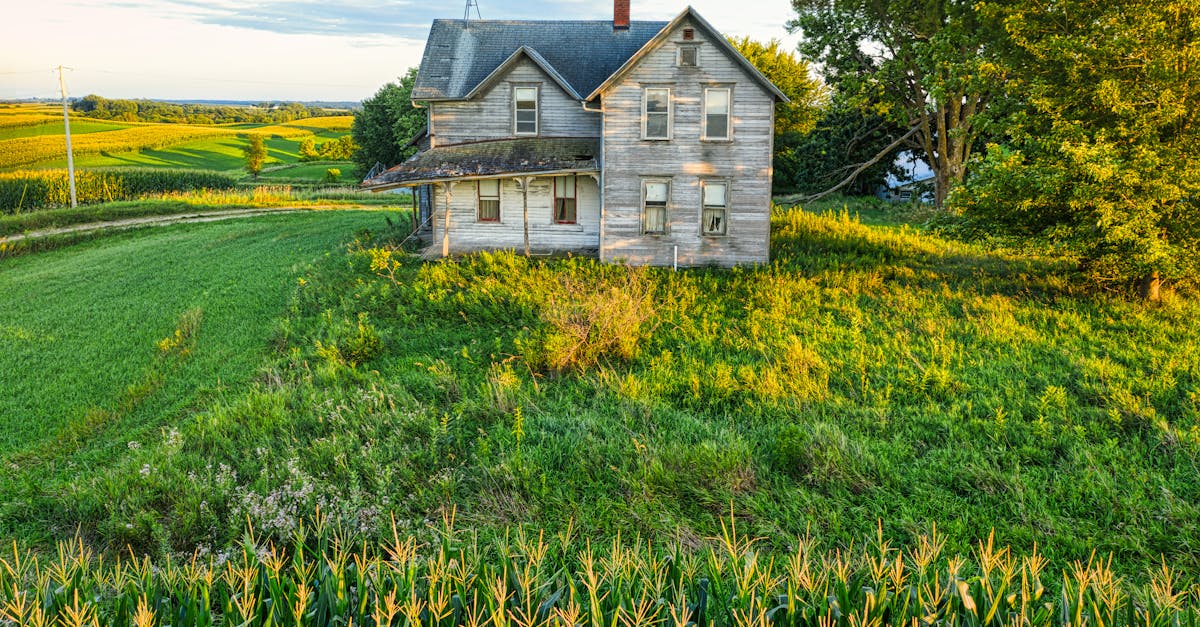Cheap Saskatchewan Crop Insurance Rates 2025: Compare Yield Policy Quotes

Key Takeaways
- The average Saskatchewan crop insurance premium varies by region and crop type, with rates influenced by local risk zones and yield policy selections.
- Government cost-sharing and subsidies in Saskatchewan significantly reduce premiums, making crop insurance more affordable for farmers.
- You can lower your Saskatchewan crop insurance premiums by comparing SCIC and private provider quotes using online tools before the March 31, 2025 application deadline.
- Yield insurance policies are popular in Saskatchewan for protecting against low crop yields, while some farmers choose revenue insurance to cover market price fluctuations.
How to Secure Cheap Saskatchewan Crop Insurance Rates and Compare Yield Policy Quotes in 2025
Saskatchewan farmers face increasing risks from weather events and market price volatility, with crop insurance premiums varying widely by region and crop type. Although government cost-sharing covers up to 60% of premiums, many producers seek affordable farm coverage that balances protection with cost.
Understanding how yield policy rates work in Saskatchewan helps you avoid overpaying while ensuring your farm has adequate coverage. This article breaks down crop insurance options for 2025, detailing how regional risk zones, policy types, and government subsidies influence premiums. You will learn how to compare crop insurance quotes across Saskatchewan, identify savings opportunities, and evaluate yield versus revenue insurance.
Explore the factors that guide you to the best crop insurance providers and policies before the March 31 application deadline. We will analyze premium costs by region and crop, explain key coverages, and guide you through using online comparison tools to find the most affordable farm insurance in Saskatchewan.
How Much Does Saskatchewan Crop Insurance Cost in 2025 for Yield Policies?
Knowing your yield policy cost in Saskatchewan is essential for budgeting your farm’s risk management. Crop insurance premiums fluctuate based on the crop type, your farm’s risk zone, and the coverage level you choose.
Premiums are adjusted annually based on claims history, local risk factors, and market trends. While these averages provide a benchmark, your specific rate depends on your farm’s characteristics. You can find the best price only by comparing personalized quotes from multiple top-rated insurers.
Saskatchewan Crop Insurance Premiums by Region and Crop Type
Premiums differ significantly throughout Saskatchewan due to geographic risk areas and the crop insured. Farms in higher-risk zones pay more to cover the increased likelihood of weather damage or pest impact.
| Crop Type | Risk Zone 1 (Low Risk) Avg. Premium ($/acre) | Risk Zone 2 Avg. Premium ($/acre) | Risk Zone 3 (High Risk) Avg. Premium ($/acre) | Best For… |
|---|---|---|---|---|
| Wheat | $10 | $15 | $20 | Low-risk farms in southern SK |
| Canola | $12 | $18 | $25 | Farms growing dryland canola |
| Lentils | $14 | $20 | $28 | Northern Saskatchewan producers |
| Barley | $9 | $13 | $18 | Mixed grain farms |
Understanding local premiums empowers you to balance coverage and cost effectively, a crucial step before exploring government subsidy options.
Government Cost-Sharing and Subsidies That Lower Crop Insurance Premiums in Saskatchewan
Overview of Saskatchewan Crop Insurance Corporation (SCIC) Programs
The Saskatchewan Crop Insurance Corporation (SCIC) manages crop insurance for the province and administers government subsidy programs. SCIC’s cost-sharing model reduces farmers’ premiums by having government bodies cover up to 60% of the total cost, improving access to affordable insurance.
How Government Subsidies Impact Your Premiums
Government subsidies reduce your premium payments directly. For instance, if your calculated premium is $25 per acre, the subsidy can lower your cost to approximately $10 per acre. This approach promotes wider insurance adoption, protecting farmers from severe financial losses caused by crop failures.
These government cost-sharing programs make crop insurance more affordable and comprehensive, significantly lowering your financial risk.
Yield vs. Revenue Crop Insurance Policies: What Saskatchewan Farmers Need to Know
What Is Yield Insurance and How Does It Protect Your Farm?
Yield insurance guarantees a minimum crop production per acre. If your actual yields fall below this threshold due to weather or natural disasters, the policy compensates for the shortfall. This coverage suits farms wanting predictable protection based on physical production risk.
Understanding Revenue Insurance and Market Price Coverage
Revenue insurance protects against losses caused by both yield shortfalls and adverse market price changes. It functions like a financial hedge, compensating if either your crop yield or market prices drop below guaranteed levels. This offers broader protection for farms sensitive to commodity price fluctuations.
Choosing the right policy is a key part of insurance planning and should be based on your farm’s unique risk exposure.
Top Crop Insurance Providers in Saskatchewan for 2025: SCIC and Private Options Compared
1. Saskatchewan Crop Insurance Corporation (SCIC)
SCIC holds the largest market share, backed by government funding and providing standardized coverage with substantial subsidies.
2. AgriShield Insurance
AgriShield offers competitive private crop insurance with customizable coverage options, ideal for farms growing specialty crops requiring flexible terms.
3. Farmers Edge Insurance Solutions
Farmers Edge integrates precision agriculture technology, combining remote sensing data with insurance to offer discounts and cutting-edge risk management.
4. Western Financial Group
Western Financial provides bundled insurance packages, combining crop, farm property, and liability insurance for convenient, comprehensive coverage.
5. BrokerConnect Crop Insurance
BrokerConnect specializes in navigating both SCIC and private policies, delivering personalized comparisons that help farmers optimize coverage and costs.
| Provider | Avg. Annual Premium (Yield Policy) | Best For |
|---|---|---|
| SCIC | Approximately $18 per acre (varies) | Broad, government-backed coverage |
| AgriShield Insurance | $15 – $25 per acre (depending on crop) | Specialty crops and flexible terms |
| Farmers Edge Insurance | Around $18 per acre with discounts | Tech-savvy farms using remote sensing technology |
| Western Financial Group | Around $20 per acre | Bundled farm insurance solutions |
| BrokerConnect Crop Insurance | Varies depending on policies | Personalized quote comparison and expert advice |
Comparing personalized quotes is the best way to identify savings and the ideal policy for your farm. Start quickly using our integrated quote comparison tool.
How to Compare Crop Insurance Quotes in Saskatchewan: Step-by-Step Guide
- Gather Your Farm Data: Collect detailed information about your crops, acreage, location, and yield history for accurate quote calculations.
- Understand Your Coverage Needs: Determine whether yield, revenue, or hybrid policies best align with your farm’s risks.
- Use Online Quote Comparisons: Leverage available tools to efficiently compare rates from SCIC and private providers.
- Check Eligibility for Government Subsidies: Verify that you qualify for cost-sharing that significantly lowers your premiums.
- Review Policy Details: Examine coverage limits, deductibles, and exclusions carefully to avoid unexpected costs.
- Apply Before the Deadline: Submit your application by March 31, 2025 to ensure uninterrupted coverage for the next crop year.
Comparing at least three provider quotes online increases your chance of finding the cheapest farm coverage in Saskatchewan tailored to your needs.
Frequently Asked Questions about Crop Insurance in Saskatchewan
What crops are eligible for Saskatchewan crop insurance in 2025?
Wheat, canola, barley, lentils, peas, and flaxseed are commonly eligible. Specialty crops may qualify under certain programs. Verify eligibility with SCIC or your private provider.
How does the Saskatchewan government crop insurance subsidy work?
Saskatchewan collaborates with SCIC to cover up to 60% of premiums for eligible farmers, reducing financial risk and encouraging insurance uptake. Subsidies require timely enrollment and adherence to reporting guidelines.
Can Saskatchewan farmers use remote sensing for crop insurance claims?
Yes. Both SCIC and some private providers use remote sensing technologies like satellite imagery to assess crop conditions and expedite claims.
What is the crop insurance application deadline in Saskatchewan for 2025?
The deadline is March 31, 2025. Applying by this date ensures coverage for the upcoming crop year without penalty.
How can I reduce my Saskatchewan crop insurance premiums?
Reduce premiums by enrolling early, bundling crop insurance with other farm policies, improving risk mitigation on your farm, and utilizing government cost-sharing programs.
Are private crop insurance providers available in Saskatchewan?
Yes. In addition to SCIC, private insurers offer crop coverage with flexible terms and innovative technology integration. Comparing quotes helps you find the best match.
What is the difference between SCIC and private crop insurance coverage?
SCIC provides government-backed baseline coverage with significant subsidies. Private providers offer tailored policies and features that sometimes come with different subsidy arrangements.
This article has explained how Saskatchewan crop insurance premiums vary by region, crop type, and coverage option, while highlighting how government subsidies dramatically reduce your out-of-pocket costs. Armed with detailed insights into risk zones and policy differences, you can now select coverage that fits your farm’s unique needs and budget.



